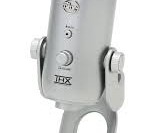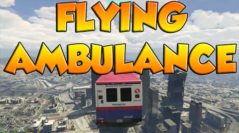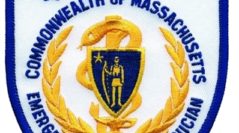This post can also by found at The EMS Leader hosted by EMS Blogs. One of the unfortunate things about having a new job is I fall at the bottom of the list when it comes to vacation time. With the days off that I could get I was forced to miss the last day of EMS Expo in Las Vegas this year. While following on Twitter though, I caught Greg Friese commenting on a panel discussion by members of the National EMS Management Association (NEMSMA for short) during a program called “The EMS Situation Room: NEMSMA Administrators, Managers, and Chiefs Forum.” To sum up the discussion simply, the focus of the forum turned to what we will refer to as the “youth movement” in EMS today. As a former supervisor for a service that likes to populate itself with lesser experienced individuals, it has become clear that the work force is changing, and it seems like some of the “old guard” is having difficulty dealing with a lot of the new attitudes and changing needs of the work force. The entire topic is something that has certainly raised my eyebrow, and it is really something that we need to look at from the first day of EMT class moving forward to someone’s last day with an EMS service. When I was in Washington DC this year for EMS Today, I was on a podcast hosted by Dave Aber where the panel included two of my paramedic instructors from Springfield College. One of the main topics of discussion was the changes that they had witnessed in their student population over the years. Fifteen or twenty years ago, when paramedicine was still in its infant stages, most of the student body was made up of people who had been practicing EMS for a number of years. The vast majority of paramedic students were street smart, seasoned adult learners. We staffed ourselves from the inside using people who were already integrated into the system and had a strong foundation and framework to help them through class. As time has gone on though, both the work force and the pool of students have gotten younger and less...
The Podcast

We took the week off last weeks or Labor Day and this week the podcast is back with a short interview that I did on Jamie Davis’ The Medicast where we talk about the show and what it is all about. Regular shows will be back next week! Enjoy! To download the show in MP3 format, follow this link! Otherwise check the show out below: ...
Read MoreFor Leadership

Roughly twelve years ago, AMR and AEV’s Safety Concept Vehicle made its way to Springfield for us to take a look at. It included a number of interesting features like an expanded harness setup to allow providers to move a little more freely around the box while still being anchored. There were mounting brackets for cardiac monitors, and video cameras to monitor both the rear of the truck for backing up, and the passenger side to check for traffic before opening the curbside door. The vehicle itself contained a lot of positives that have been adopted over the years. I see more cameras used in emergency vehicles and I’m a a fan of the checkered or striped patterns on the backs of trucks to make them more visible to oncoming traffic. I have also seen a few more monitor brackets. But where is everything else? When is that ambulance of the future going to get here? Year after year at conference after conference, there will undoubtedly be some ambulance parked on the exhibit hall floor touting itself as the “ambulance of...
Read MoreFor the Field

There has been a lot of buzz over the past week about California’s EMS Bill of Rights. Dave Konig has a great take on it over at The Social Medic that I encourage you to read. American Medical Response has even launched a counter campaign to it complete with the hashtag #LivesBeforeLunch. While that makes me cringe a bit, I want to touch on one line of AMR’s response to the bill that stuck with me. “As written, AB 263 is an unprecedented political power grab, and will heavily penalize private – but not public – employers of EMTs and paramedics.” When I look back at my career with AMR that spanned more than twelve years, I had a lot of ups and downs. Had busy shifts and I had slow shifts. I found myself mandated to work despite being sick, or just needing a day off. Through the highlights and the lowlights of working in a busy 9-1-1 system that amassed roughly 40,000 calls per year, the instances where my 12 hour shifts hit double digits were rare when compared...
Read MoreLessons to Learn

Any time I peruse the pages of EMS related articles I will inevitably come across some service that is trying to take over another service’s area. Diving deeper into those articles usually reveals the same usual arguments. Imagine my surprise when I clicked on an article about the East Longmeadow Fire Department’s move to take over EMS response in the town of East Longmeadow. I should first point out that what I am about to write is meant to represent my own personal views on the state of the industry. I have not inquired about anything having to do with the current staffing of ambulances and volume. What I am reflecting on is the article and just the article coupled with my years of experience in the greater Springfield area. Just to give a little bit of background here, I used to have a dog in this fight. As many of you know, I was a 12-year employee of American Medical Response, the last seven of which as a supervisor. I participated in contract bids for the town, and saw service...
Read MoreRecent Posts
New Endeavors
Last week, I had a very interesting and very exciting prospect proposed to me. David Konig who runs EMS Blogs and writes primarily at The Social Medic contacted me and asked me if I had any interest in being part of a new project that he was putting together. As Dave looked around the internet, he saw a distinct lacking of EMS related blogs that addressed management and leadership topics so he decided to address that by creating a blog appropriately titled The EMS Leader. The EMS Leader will be managed by a series of contributors including myself discussing topics that we feel should be important to leaders and managers. Although I am currently not involved at a management level, I am excited that Dave thought enough about me and my writing to include me in his newest endeavor. Look for my post to hit the internet Wednesday morning. Posts will also be shared here, and can be sorted using the category “The EMS Leader” on my blog. In the meantime, go check out the posts that Dave already has up! The blog is already rolling, and there is some good stuff...
Poor Quality Improvement 101: The Slippery Slope
Recently I read a story from Alameda County, California describing the issues that they are having there particularly with responses to stabbings and shootings. According to the article, the dispatch center in ALCO has abandoned their previous “send anyone to anything as soon as it comes in” system for a more nationally accepted system utilizing Priority Medical Dispatch. Priority Medical Dispatch, or PMD, is supposed to prioritize calls and tailor responses to those calls by classifying them utilizing a limited amount of medical information. Calls are classified from the lower “ALPHA” level response to the most serious calls classified as “ECHO” level calls. ECHO runs are mostly reserved for cardiac and respiratory arrests. The purpose of the system is to get the most serious calls taken care of first. It is a means of phone triaging. Using a series of questions, call takers do their own little “choose your own adventure” flow chart and end up with a call’s classification. The claim made by paramedics and EMTs in ALCO states that on occasions since the change over from AMR to Paramedics Plus, runs that turned out to be fatal or serious shootings and stabbings were classified at the less serious “BRAVO” level. Field providers are now demanding that prioritization changes be made to give these calls a quicker response. I, for one, cannot help but feel like they are barking up the wrong tree. I feel like I have seen both the “very good” and the “just okay” of Emergency Medical Dispatch and PMD throughout my career. I have seen it work well, and I have seen it misused. Any system that gets used is going to be less than perfect, and utilizing Priority Medical Dispatch is no exception to that rule. I believe it was Justin Schorr who once described Priority Medical Dispatch’s greatest flaw as the “least informed person (the caller) is talking to the least trained person (the dispatcher)” any anytime we discuss dispatch, or the prioritization of any calls, that needs to be kept in mind. The real issue in Alameda County, as is in most systems that have I seen struggle with the problems they are having, is a...
RIP, Donald Spittlehouse

Aug 30, 2013
Every EMS system in the country, and most likely the world, has their share of “regular” patients. It was brought to my attention via Facebook that Springfield lost one of its most well known patients who was a frequent user of the ambulance service there for close to 30 years. No one, however, has been able to find an obituary, so I decided to write one for him. . . Donald Spittlehouse (1945 – 2013) was called by his own personal higher power sometime in the past two weeks. While the exact date of his passing is unknown, his loss was felt far and wide throughout the EMS community in the greater Springfield, Massachusetts area. While much of Donald’s background is unknown, his reputation was legendary and the kind of thing that fables are made of. Some said that he was a simple machine worker who spent most of his life in New England. Others, however, said that he was an ill fated former MIT professor who fell into a deep state of depression after having his heart broken. Donald was known by many names, and would occasionally be referred to by the code name “Mr President.” Some would also say that he could single handedly be credited with keeping the pay phone market alive in Springfield. Donald was most well known for his affinity for trivia, especially when it came to geography. He could recite without hesitation the capital of each of the United States, and many countries throughout the world. He was a skilled at crossword puzzles and would often contribute to clues that would commonly stump many amateurs while waiting for the arrival of his “extended family members.” While some might have been frustrated in their interactions with them, Donald was also the recipient of the kindness and generosity of the medical community in the form of breakfast sandwiches, coffees, and the occasional shower and shave. It is unknown if Donald left any family behind. He was, however, predeceased by many who had a similar place within the EMS community, namely such legends such as Stephen Donahue and Zoya Shaw. He is, however, survived by countless paramedics, EMTs, nurses and doctors...
A Question About Violence
I have been giving some thought to the recent events in Springfield involving an ambulance being struck by bullets, and a rather real looking BB gun being pulled on a tech in the back of an ambulance. That, along with the law passed this year in Delaware got me thinking, and i figured I would pose a question of the readers. If an EMT or paramedic is assaulted, where should the responsibility of filing charges fall? Should services have a zero tolerance policy regarding violence against their employees? Should they be encouraged to strongly advocate for their employees with law enforcement and encourage their people to file charges, assisting them along the way? Or should they take a hands off approach and leave the decision and procedure of pressing charges to their individual employee? So, what do you...



Recent Comments